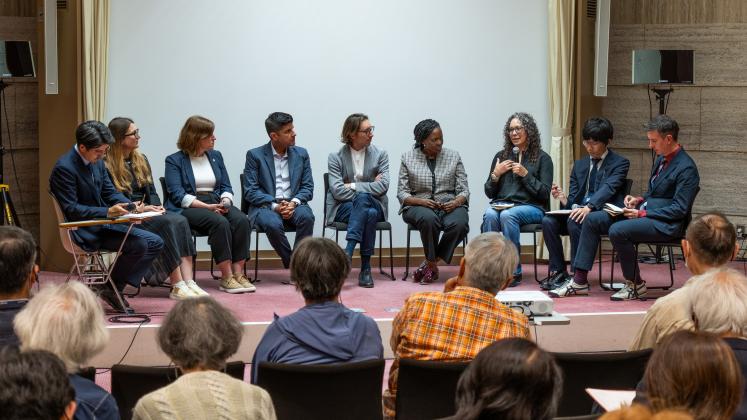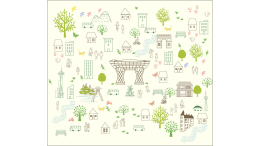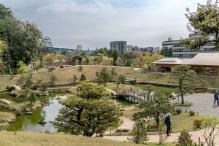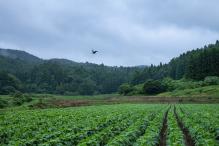On 20–22 May 2025, UNU-IAS co-organized a series of events in Kanazawa, Japan exploring the role of culture and citizen engagement in urban ecosystem restoration. They brought together experts from 11 cities that are part of the #GenerationRestoration Cities project led by the United Nations Environment Programme (UNEP), which is tackling ecological degradation in urban areas through nature-based solutions.
A public symposium on 22 May, celebrating International Day for Biological Diversity, discussed innovative approaches for regenerating urban ecosystems while safeguarding and celebrating cultural heritage. Restoration initiatives were presented by experts from seven cities: Kanazawa; Kisumu, Kenya; Istanbul; Mexico City; Paris; Seattle, USA; and Toronto, Canada.
The event featured opening remarks by Takashi Murayama (Mayor, Kanazawa City), followed by three keynote lectures. Yulia Rubleva (Associate Programme Management Officer, Urban Nature, UNEP) outlined the benefits of urban ecosystem restoration, including climate resilience, public health and community well-being. Ingrid Coetzee (Director: Biodiversity, Nature & Health, ICLEI — Local Governments for Sustainability, Africa Secretariat & Global Cities Biodiversity Center) emphasized that cities were hubs of innovation, developing crucial solutions for sustainability challenges. Noting that cities were at the centre of efforts to create societies in harmony with nature, Wataru Suzuki (Nature Conservation Bureau, Ministry of the Environment, Japan; MOEJ) identified relevant targets of the Kunming–Montreal Global Biodiversity Framework (GBF) and the critical need for a transition to sustainable food.
Experts from the seven cities shared insights and lessons from their restoration initiatives. These included efforts in Toronto to engage Indigenous communities in ecosystem management, and the Altépetl initiative in Mexico City, which has restored 5,000 hectares for agroecological production and trained nearly 3,000 firefighters. In Paris, the Oasis Schoolyards programme shows that even small green spaces can create impact when people design nature together. Restoration of urban parks in Kisumu has reduced the heat island effect, created new jobs and provided areas for recreation.
A panel discussion moderated by Togo Uchida (Executive Director, ICLEI Japan) focused on community-led urban regeneration, exploring links between culture and nature. It highlighted the need to empower communities in restoration efforts and ensure intergenerational communication. While political will is important, there can also be a tension between building consensus and responding quickly to emerging challenges. Small-scale initiatives can make a great difference, and should not be underestimated.
In closing remarks, Shinobu Yume Yamaguchi (Director, UNU-IAS) underlined the crucial role of communities in restoring urban nature. She emphasized that the UNU-IAS Operating Unit Ishikawa/Kanazawa (OUIK) was uniquely placed to connect local efforts with the global policy agenda — including the GBF and the UN Decade on Ecosystem Restoration. OUIK has been developing local models for ecosystem restoration through research and policy engagement, which contributed to UNEP selecting Kanazawa City as one of the first 11 Role Model Cities under the #GenerationRestoration Cities initiative in October 2023.
The symposium followed a series of workshops and field visits to urban restoration sites in Kanazawa. Experts exchanged knowledge and best practices from initiatives implemented in their cities, and co-developed future strategies for urban nature restoration.
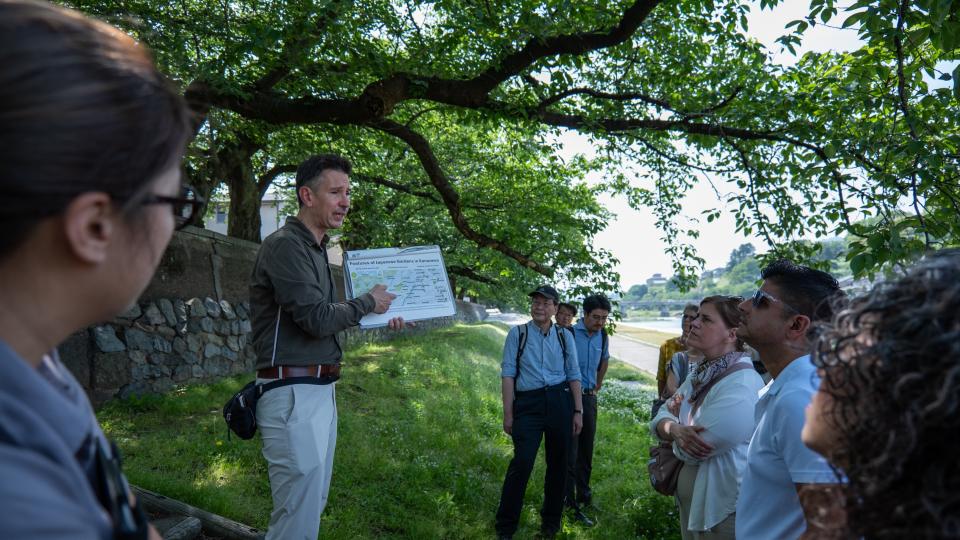
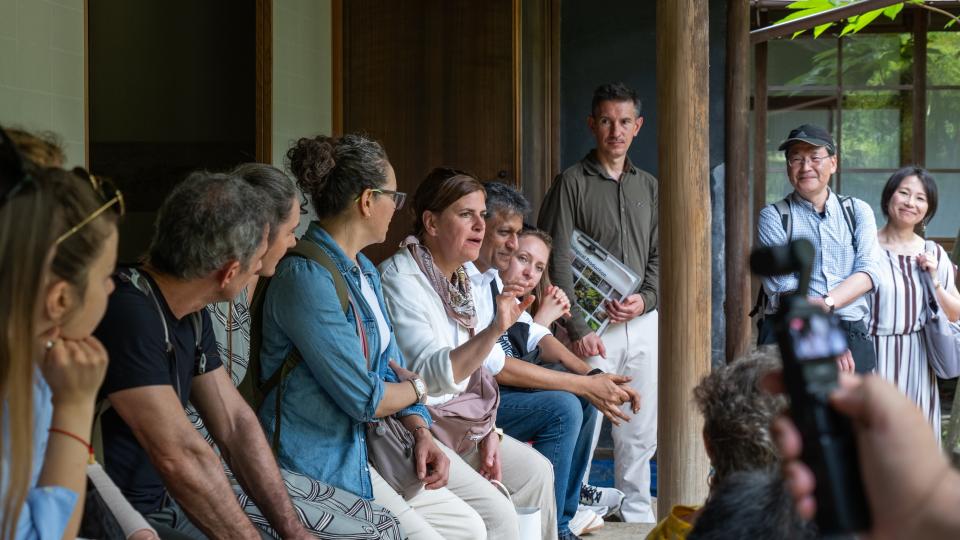
The events were co-organized with Kanazawa City and MOEJ, with support from UNEP, Local Governments for Sustainability (ICLEI) Japan and Ishikawa Prefecture. They were part of a series of activities celebrating the 50th anniversary of UNU.

